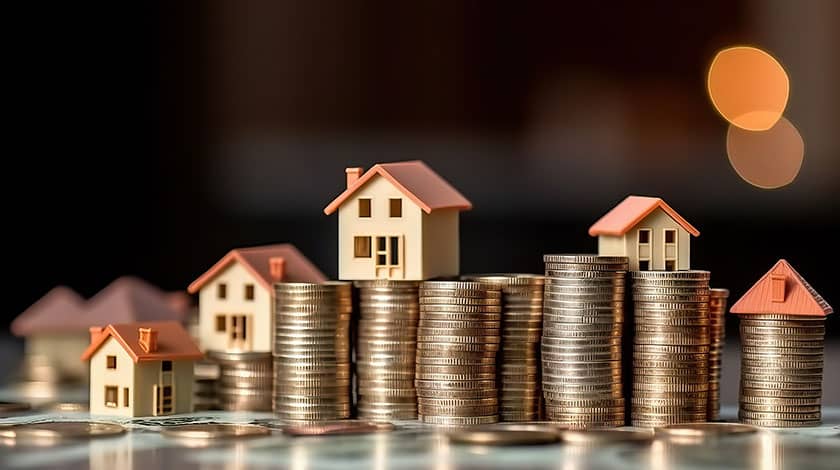How to Navigate the Real Estate Lockhart Market as a First-Time Buyer
How to Navigate the Real Estate Lockhart Market as a First-Time Buyer
Blog Article
The Future of Property: Fads and Opportunities to See
As the actual estate landscape advances, it ends up being progressively necessary to recognize the emerging patterns and chances that will certainly define the industry in the coming years. With these dynamics at play, a more detailed evaluation of the techniques and adjustments necessary for success exposes interesting opportunities that can reshape investment techniques and market actions.
Technological Technologies in Realty
Over the last few years, the realty industry has welcomed a wave of technological advancements that are changing traditional techniques. These improvements have significantly boosted performance, openness, and decision-making procedures within the sector. One of one of the most notable advancements is the increase of large data analytics, which allows genuine estate professionals to analyze market fads, predict building worths, and recognize investment opportunities with unmatched accuracy. This data-driven method makes it possible for stakeholders to make informed choices and lowers the dangers related to property deals.
Additionally, online reality (VIRTUAL REALITY) and enhanced reality (AR) innovations are reinventing building marketing by offering immersive experiences for possible customers and occupants. These tools permit customers to conduct online excursions of residential or commercial properties, consequently improving the search procedure and boosting client involvement. Blockchain modern technology is gaining grip as a method to secure purchases and preserve transparent records, thereby minimizing fraud and speeding up the closing process.
Smart home technologies are likewise coming to be progressively prevalent, enabling house owners to check and manage their homes from another location (Real Estate Lockhart). Jointly, these technological innovations are reshaping the landscape of property, fostering a much more reliable, clear, and customer-centric market
Need for Lasting Properties
As customers significantly focus on ecological responsibility, the demand for lasting properties has surged in the realty market. This shift mirrors a broader social pattern towards sustainability, with buyers and investors seeking residential or commercial properties that lessen ecological impact while making the most of power performance. Attributes such as photovoltaic panels, energy-efficient appliances, and sustainable structure materials are now viewed as crucial instead of optional.

Furthermore, the surge of eco-friendly communities, which prioritize walkability and access to mass transit, additionally emphasizes this trend. These growths attract environmentally mindful purchasers and promote a much healthier way of living.
As the need for lasting residential properties remains to rise, market stakeholders must adapt to these expectations. By embracing ingenious techniques and prioritizing sustainability, the genuine estate field can not just fulfill customer demand but additionally add to a more sustainable future.
Altering Customer Demographics

Furthermore, the maturing populace is reshaping demand for housing. Infant boomers are seeking scaled down residences that offer ease of access and reduced maintenance, often preferring metropolitan setups with close-by amenities. This change demands a focus on multi-generational real estate solutions that accommodate varying demands.
Additionally, cultural variety is playing a critical function in real estate fads. As these demographic shifts continue to advance, real estate experts should adapt their approaches to address the demands of these different buyers (Real Estate Lockhart).
Increase of Remote Work Influence
Significantly, the surge of remote job is changing the property landscape, motivating considerable changes in buyer preferences and location choices. As employees appreciate the adaptability of working from home, lots of are reevaluating their property needs, leading to a rise sought after for homes in suburban and country locations. This fad is mostly driven by the need for even more large living environments that can accommodate home offices and a far better high quality of life.
Additionally, city centers, when the centerpiece for purchasers, are experiencing a progressive decline sought after as people prioritize price and access internet to nature. Actual estate programmers and investors are moving their focus toward homes that supply home workplace areas, outdoor amenities, and proximity to vital services.
Actual estate professionals need to adapt to the changing preferences of buyers, emphasizing the significance of lifestyle factors in their advertising methods. The effects of remote job on genuine estate are extensive, forming future patterns and possibilities.
Financial Investment Opportunities in Emerging Markets
Investment opportunities in arising markets are consistently bring in interest from genuine estate investors looking for diversification and growth possibility. These markets, defined by quick economic advancement, increasing urbanization, and an expanding center course, present special potential customers for wise financiers. Countries in Southeast Asia, go to this web-site Africa, and Latin America are witnessing significant framework renovations and favorable government plans, which further enhance their charm.
Realty industries such as residential, commercial, and logistics are experiencing heightened demand due to metropolitan migration and evolving consumer choices. Especially, cities like Ho Chi Minh City, Nairobi, and Medellín are coming to be hotspots for investment due to their broadening economic situations and youthful demographics.
Investors ought to perform extensive market evaluations to identify key trends, such as changes in population dynamics and financial security, which can influence building values. Furthermore, partnerships with local property companies can assist in effective access and navigating in these markets.
Nonetheless, it's critical to be conscious of potential threats, including political instability and regulatory difficulties. By weighing these aspects and taking on a lasting perspective, investors can efficiently take advantage of the lucrative opportunities emerging in these developing regions.

Conclusion
In conclusion, the future of real estate will certainly be significantly influenced by technological advancements, a growing emphasis on sustainability, and progressing customer demographics. Browsing this changing landscape will call for calculated partnerships and a keen understanding of market characteristics to take advantage of on the patterns forming the market.
As the real estate landscape advances, it ends up being significantly necessary to understand the arising trends and possibilities that will specify the industry in the coming years. One of the most noteworthy technologies is the rise of large data analytics, which enables actual estate professionals to examine market trends, anticipate residential property values, and recognize investment chances with unprecedented accuracy.As customers increasingly focus on ecological responsibility, the need for sustainable buildings has actually risen in the actual estate market. The effects of remote work on actual estate are extensive, shaping future fads and chances.
Investment possibilities in arising markets are address consistently attracting interest from genuine estate capitalists looking for diversification and growth possibility.
Report this page